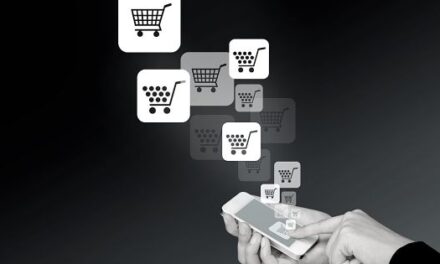We can’t avoid it: Tax Day. It’s something that happens every year. But, for many, preparation continues to be a tedious and burdensome task – especially for small business owners. You’re frantically gathering hundreds of receipts and other paperwork for your accountant. You’re trying your best to correctly label each expense. And you’re hoping everything adds up.

Simply put, this method is time-consuming, expensive, and inaccurate. It’s what happens when a small business owner – or a part-time bookkeeper – is involved in tax preparation. You don’t stay on top of your expenses, you fall behind, and you’re suddenly playing catch up. It’s stressful – but it doesn’t have to be that way.
Imagine a world where your data is prepared for you, expenses are labeled, and the legwork is done. If you want this type of organization every year – and who wouldn’t? – you need expense management technology. It allows you to capture every expense as it happens, generate specific reports, and categorize data. Need to add a certain note for a client project? It can do that, too (before you forget what it’s about!). And, perhaps the best part: it’s incredibly simple to set up and use. Tax season is about to get a whole lot easier.
Capture your expenses as they happen.
One of the biggest reasons tax season is stressful for small business owners and bookkeepers is that they’re playing catch up. Once March rolls around, you’re staring at an inbox of receipts, purchase confirmations, and bank statements. There might even be envelopes of other documents. Everything is everywhere. You’re working backward to remember what each piece of paper means. ‘What was this receipt for?’ ‘What project was this?’ It’s easy to become overwhelmed.
Expense management technology allows you to easily keep pace with all of it. For example, if you’re out to dinner with a client, you can snap a picture of that receipt right away. It is then stored digitally where all your expense documents appear in one place. There is no setup or learning curve. And, you’re not digging for paperwork – which, by the way, means there is a lot more time for you to focus on your business projects. We’ve seen folks save an entire weekend or more here. Why should tax preparation become its OWN project?
Generate specific reports needed for accountants – and accurately.
Let’s face it: It’s not easy trying to tabulate data from hundreds of business transactions every year. It’s extremely time-consuming, tiring, and wrought with error. Using expense management technology makes this part a breeze. It has the flexibility to generate reports needed by your accountant. After all, that’s what this is all about, right? You need to be able to output data for tax purposes in a useful way for your accountant. You’re able to prepare the data beforehand so that the process goes as smoothly—and quickly – as possible.
Here’s how this business technology helps you: You can run a yearly report for taxes that shows every expense by category. The accountant now has a breakdown of expenses and perhaps even a pivot table. You can tell them how many expense categories you have and how they are segmented. The accountant has all of the relevant information and likely just needs to tie up some loose ends. The hard part is over – and it’s not even that hard with expense management software. It’s also reassuring to know that this kind of technology can be over 99% accurate. Like we mentioned earlier, there is no more legwork for taxes.
Categorize expenses and add annotations for client notes.
It’s extremely important to categorize your expenses correctly as a small business owner. You want to make sure you are taking advantage of every tax deduction possible. But that’s not always easy to do. Sure, it might be easy to classify a receipt from Staples as “office supplies,” but it can go downhill from there fast. You may have made a note on a receipt from a restaurant reception for clients. You labeled it as a “marketing” cost for tax deduction purposes. The problem: it’s nowhere to be found. We’ve seen many folks trying to be organized only to realize there is simply too much paper floating around.
That changes with expense management technology. There is no need to keep paper receipts since data is stored in the cloud. And, one of its best functions – especially for taxes – is how you can add notes and annotations for each and every expense. That can go a long way here. There’s no mystery around what client it was for, who you had dinner with, or what project was discussed. There’s no deciphering of scribbled notes on documents. You need everything to be as clear as possible when it comes to taxes, so why make it more complicated than it has to be?
If you’ve never used expense management technology, now is a great time to start. You’ll get your expenses organized, taxes prepared, and the financial side of your business in good hygiene for the long term. You might even wonder why you haven’t used this tool all along –and not just for tax season. Why wait?























